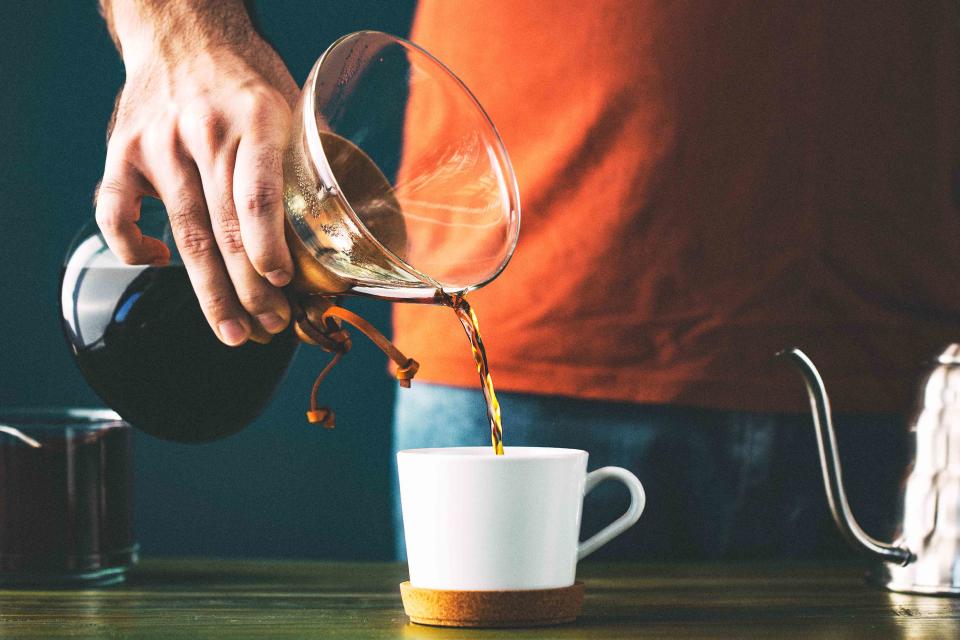What Happens if You Quit Drinking Coffee Daily?
If you're looking to cut down on your daily latte count, here's what to know.

Xesai / Getty Images
Sipping a creamy, balanced latte every morning can be a double-edged sword. It provides a delicious jot of energy in a familiar format, but it’s easy to overdo it. When sipping on a large order of the coffeeshop classic, you might have felt your heart rate rising or an uncomfortable flutter of anxiety. Maybe it’s even led you to consider dropping the double-shot habit altogether.
You’re definitely not alone — one Gallup survey says that at least 10 percent of Americans want to reduce their caffeine intake. And while researchers believe coffee might have some key health benefits, like protecting against heart disease and diabetes, it’s understandable why some drinkers choose to cut back on the daily grind.
What happens to your body immediately after you stop drinking coffee?
The FDA caps safe caffeine consumption at 400 milligrams daily, but a moderate coffee drinker is typically considered someone who sips 3-5 cups of drip coffee daily. For those keeping count: That number doesn't include espresso-based lattes, cappuccinos, and whatever fanciful blended coffees the folks at Dutch Bros dream up.
Daily coffee runs can establish a physical dependence, though. It’s not considered a chemical addiction (sorry, self-described coffee addicts), but rather a slight dopamine hit and habitual stimulant your body learns to expect, per the Cleveland Clinic. When someone suddenly stops giving their body that jolt of energy, unpleasant signs of “withdrawal syndrome” often appear.
Headaches, fatigue, and difficulty concentrating are the most common symptoms, but Dr. Stephen Devries, preventive cardiologist and executive director of the educational nonprofit Gaples Institute, says that the severity of caffeine withdrawal differs from person to person. Some might not even notice a difference at all. The American Medical Association notes that withdrawal symptoms usually start as soon as 12 hours after the last cup and last for up to 10 days in caffeine-sensitive individuals. Plan to feel sluggish (and maybe even grumpy) for a day or two before your body adjusts.
How to safely cut back on drinking coffee
Consider swapping your double-shot dirty Chai for soothing green tea or half-caffeinated coffee. To ensure your body is supported throughout the process, Devries advises upping water consumption and integrating more exercise into your daily routine.
“To reduce or eliminate caffeine from your diet, the best strategy is to make the transition gradually,” he says. “One approach is to reduce the number of caffeinated drinks in half, and then in half again a few days later.”
If you can’t bring yourself to give up the java just yet, though, rest assured that you’re in good company.
For more Food & Wine news, make sure to sign up for our newsletter!
Read the original article on Food & Wine.

